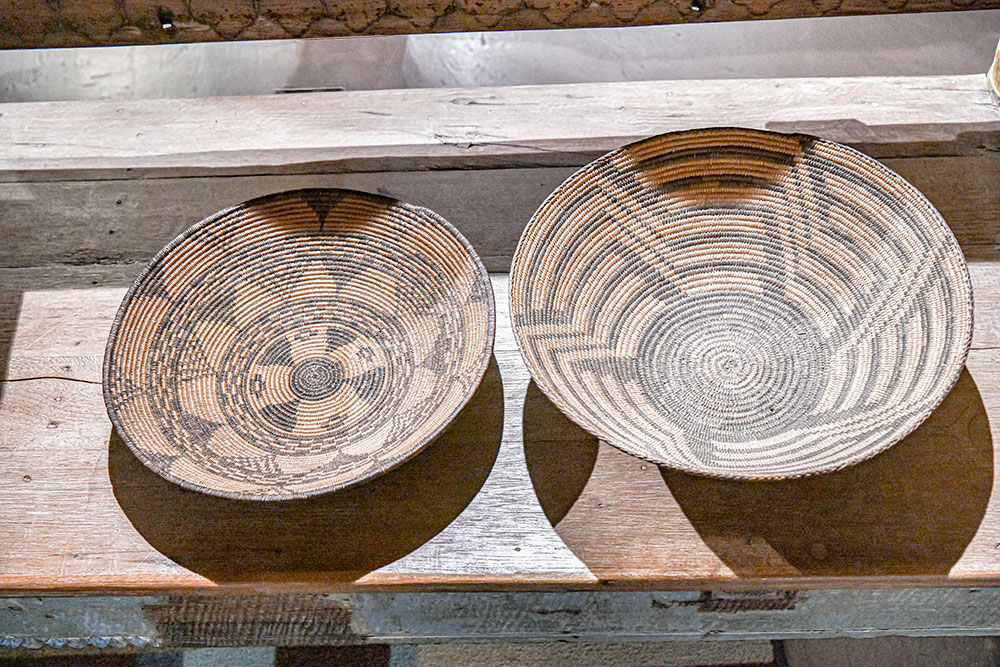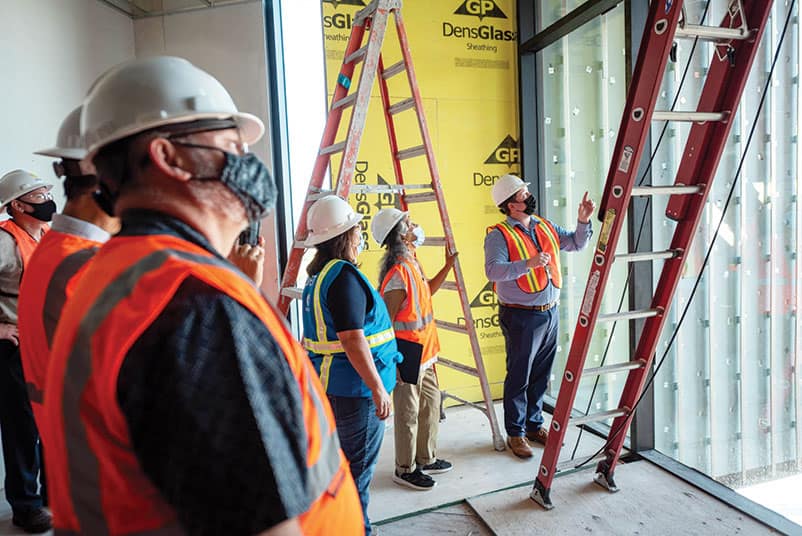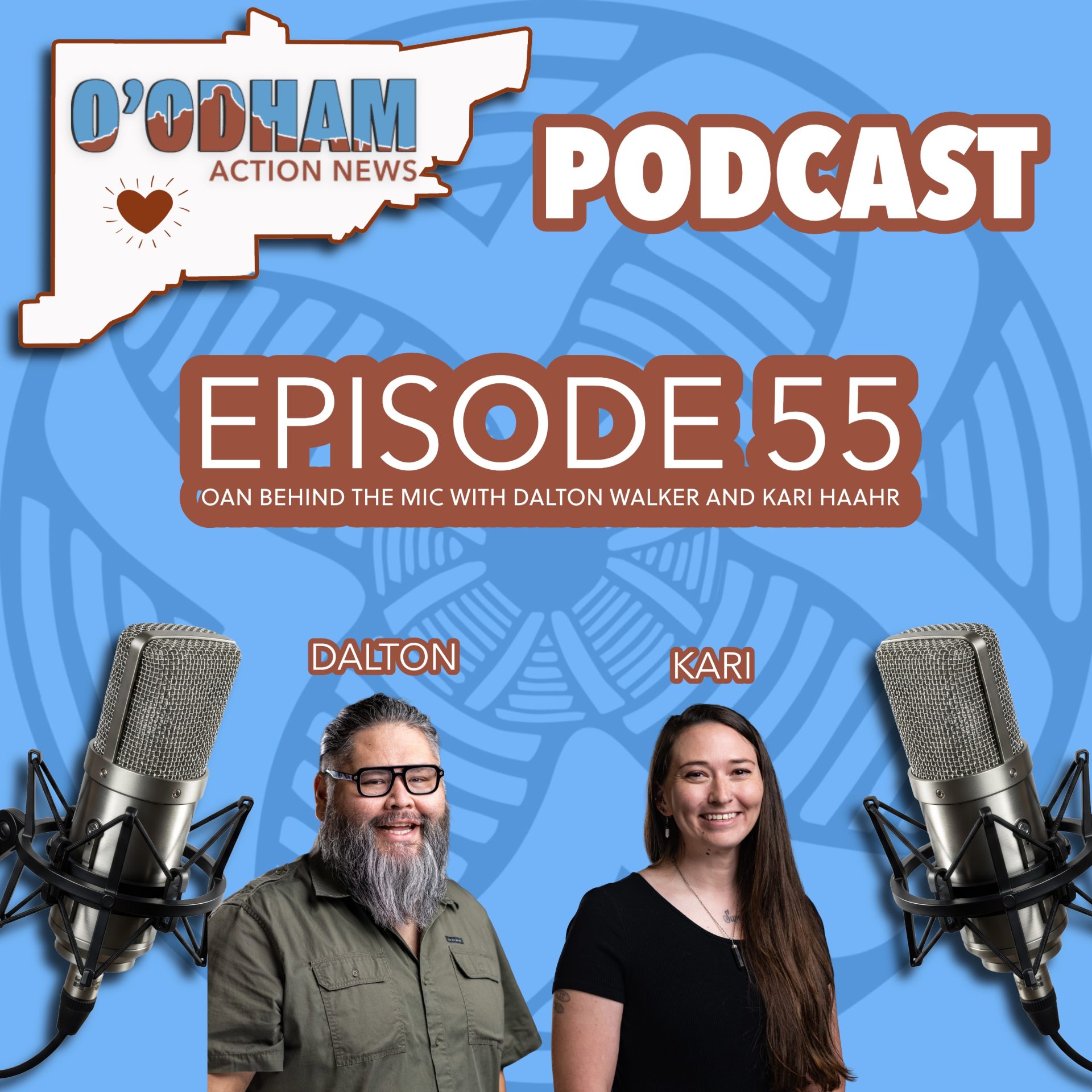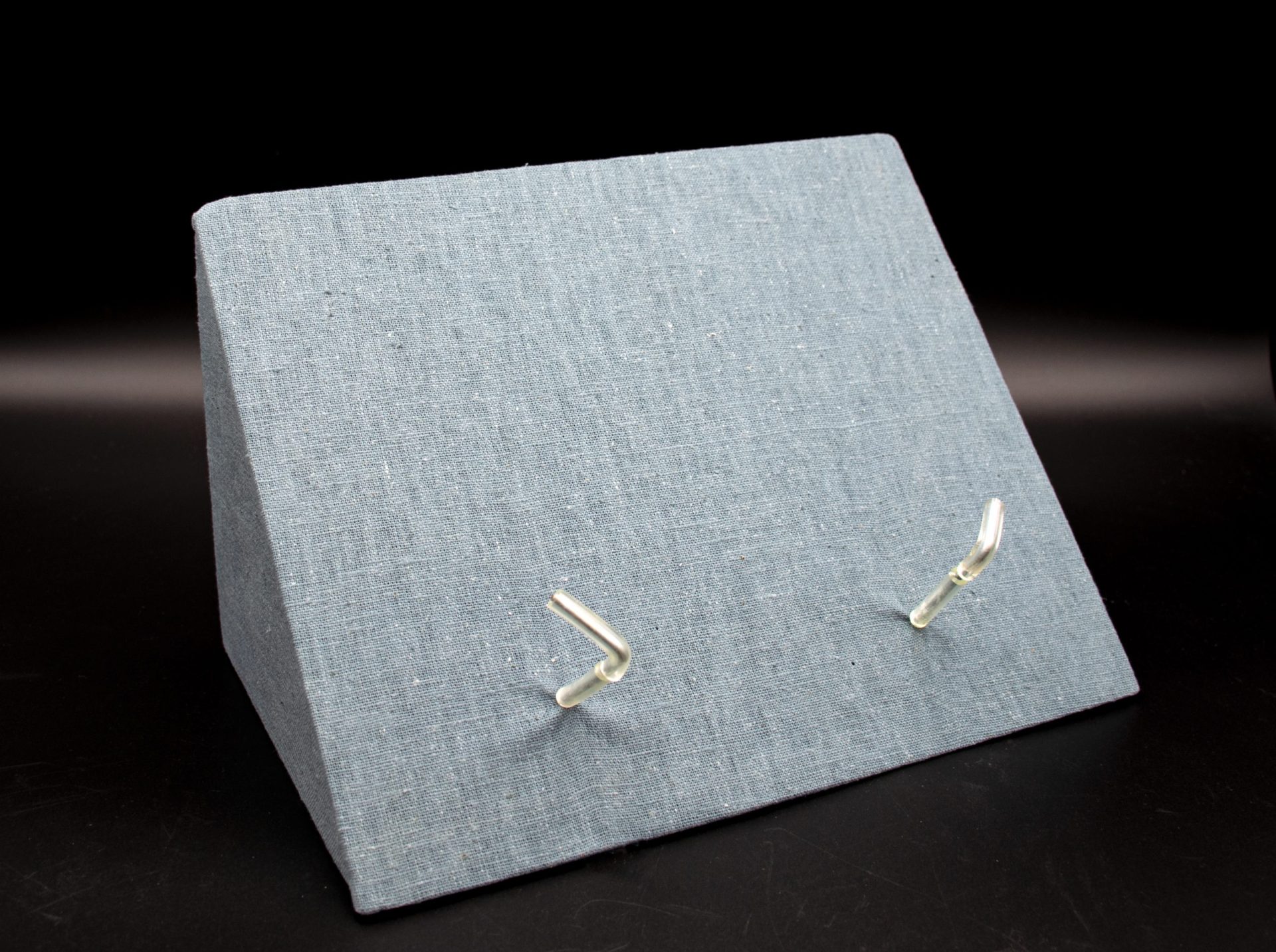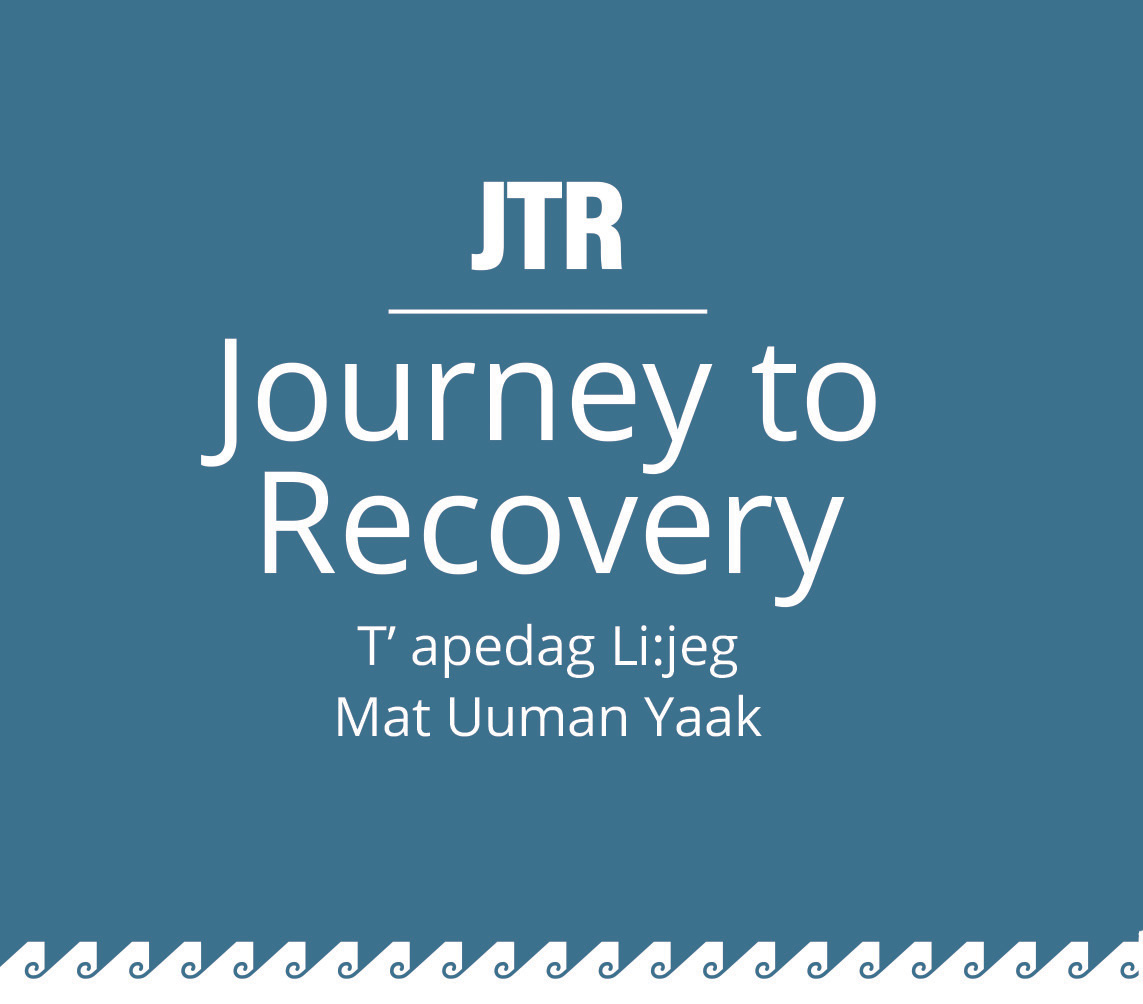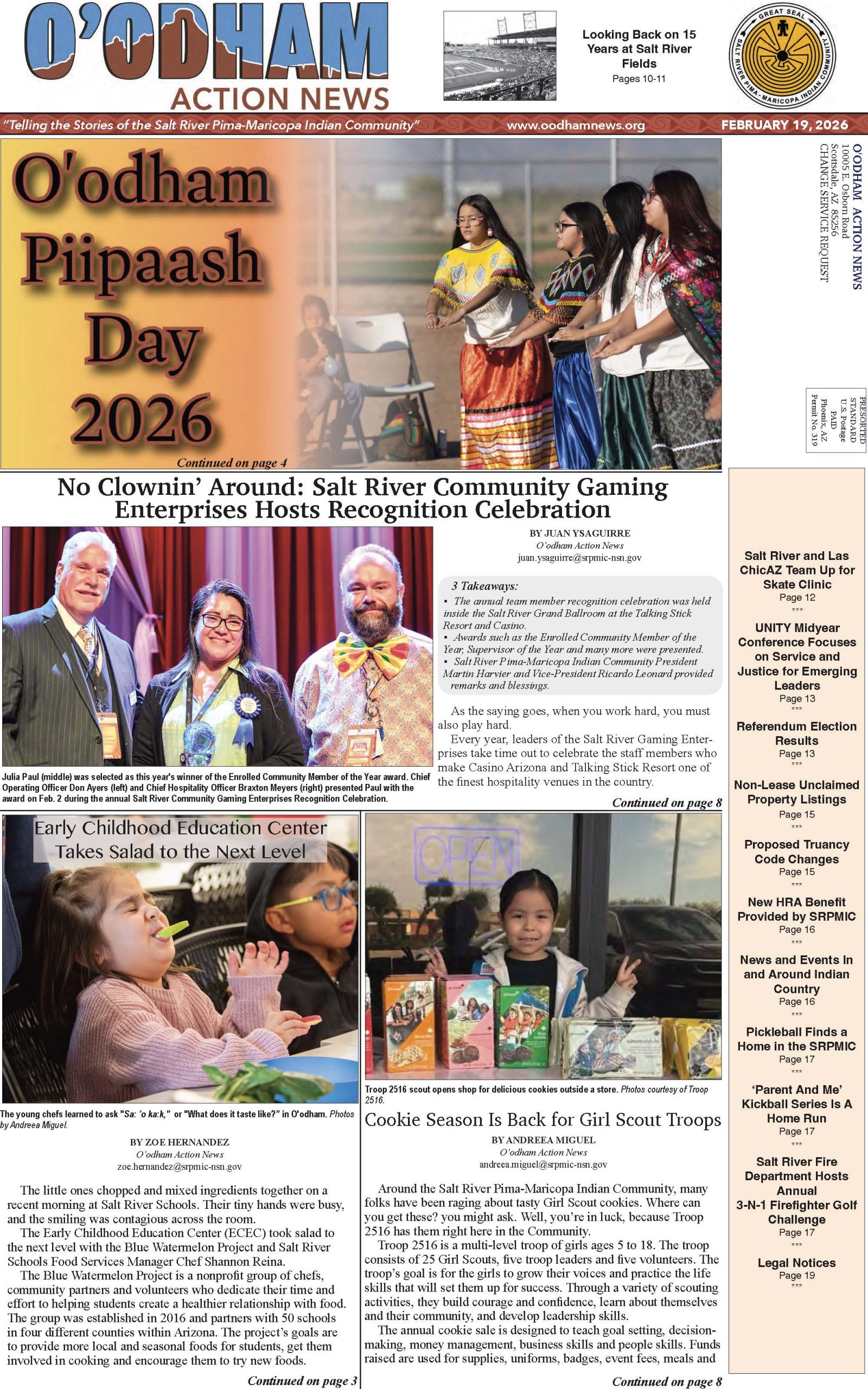VIEWS: 2117
April 14, 2024Two Traditional Baskets Returned to SRPMIC
“Imagine this: seven baskets sitting in Neal Haga’s barn. He had 3 acres on Prince Road and First Avenue [in Tucson], a little compound back there,” said John Matis as he began telling the story of how the Salt River Pima-Maricopa Indian Community came to receive two traditional baskets during the morning of March 12 thanks to Matis hand-delivering the baskets in-person to the community. Both baskets date from the early 1900s. The basket hand-off between Matis and SRPMIC took years to coordinate and finalize.
Matis told his story of how he came into possession of the baskets in an exclusive gathering featuring a small group of individuals inside of the Huhugam Ki Museum. Gary Owens, director of the Huhugam Ki Museum, was in attendance as well as University of Arizona discovery officer specialist Mark C. Strickling and Jacquelyn Valenzuela, executive associate for the Native American Advancement and Tribal Engagement Office. Unveiling the baskets from the box they arrived in, Matis gently placed the baskets out on the Huhugam Ki Museum bench near the front entrance as he shared his story.
Matis began, “My wife and I arrived here [in Arizona] in 1968 and we were looking at an apartment [in Tucson]. We didn’t get it. So, we drove around, and we saw this circular driveway. Neal Haga’s place. He was renting out his mother-in-law apartment [at the time]. I got to know Neal. His wife passed away shortly after,” he said.
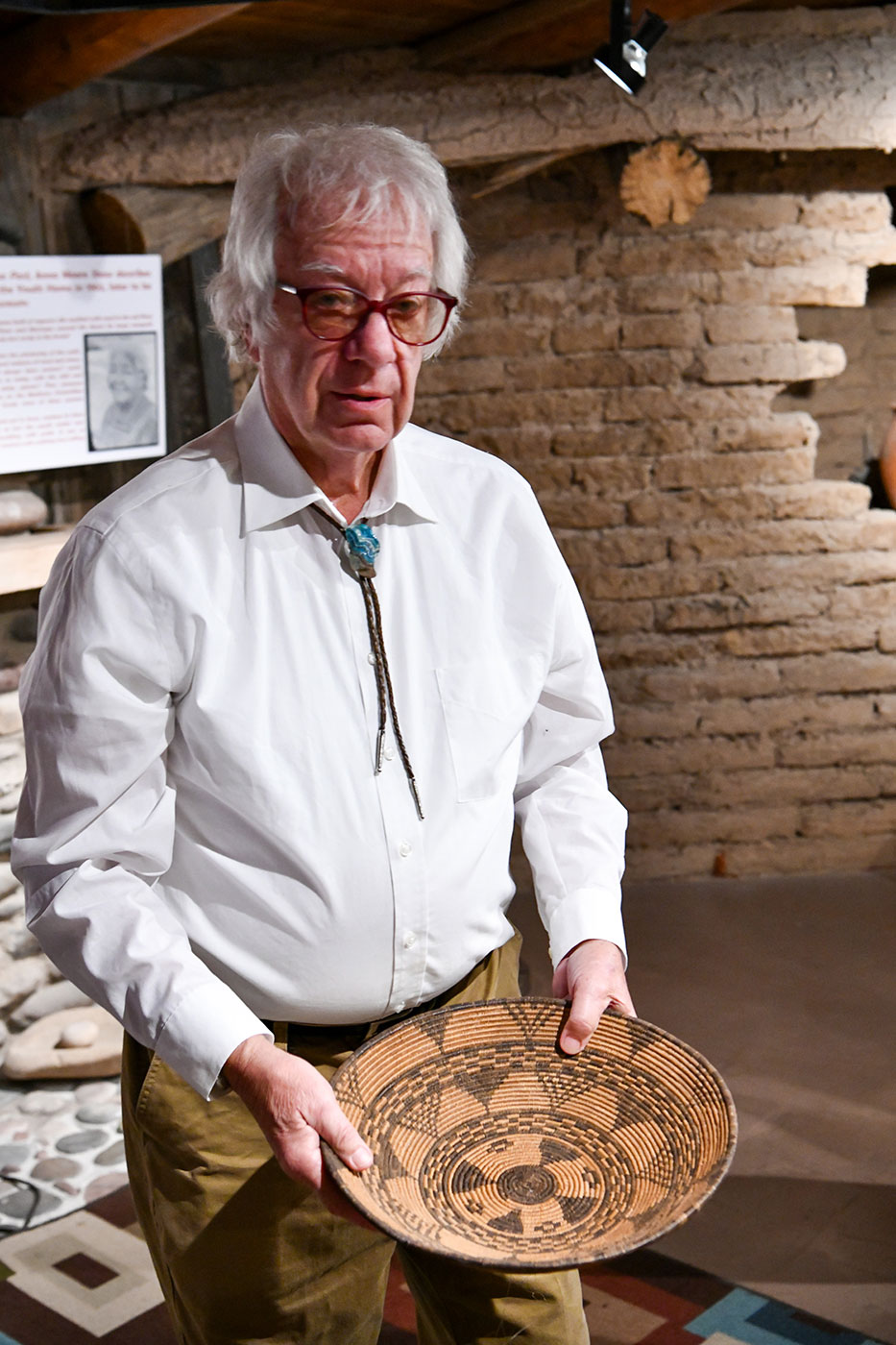
“Neal’s wife and her mother worked for the Gila River [Indian] Community. There were these seven baskets, sitting in [his] barn, and I thought, ‘My God, look at these things.’ They were remarkable,” he said.
Haga told Matis about a volunteer nursing program for which his wife and mother-in-law worked. “Neal’s mother-in-law, supposedly at the time, was married to the guy who founded the chemistry department at the University of Arizona. People would give them baskets as a token of their appreciation for helping them during the influenza outbreak of 1918 [because the people] had no money [to pay],” said Matis.
The following year in 1969, Matis found work in Sells and his wife was a schoolteacher during that time. After graduating with his master’s degree later that year, Matis decided to visit Haga. Matis was driving a work truck with an attached long-bed trailer at the time he arrived to Haga’s residence.
“Neal goes to me, ‘You know John, I really like that trailer.’ I told him, ‘Yeah, sure, why don’t I give it to you?’ and Neal told me, ‘No, no. Why don’t I give you some baskets?’”
Matis requested that Haga inform his family first and ensure that they were aware of the exchange between the two men. “You know how us older people do. We give away stuff our families want and then they say to us later, ‘Well why’d you do that?’” joked Matis. Haga returned to Matis and informed him that his family was okay with the trade.
“Neal goes, ‘They don’t want them. Take your pick,’” said Matis. So, he and his wife picked out two baskets. “They told us they are pre-statehood baskets. I chose one, my wife chose the other. That was 55 years ago.”
Presently, Matis lives in Colorado and his wife has since remarried and now lives in California. “About two or three years ago, I contacted Gary Owens (director of the SRPMIC Huhugam Ki Museum). I sent him pictures [of the baskets]. Gary told me he wanted further pictures, [and] photos of the [baskets’] edge and how it was put together. We verified that [the baskets] are quite valuable and very unique.”
This past October, Matis was in Arizona and visited the SRPMIC. “As luck would have it, Gary was here,” Matis said. “We got together and we talked about it. I knew absolutely, positively, this is where these [baskets] should be. There’s no question,” said Matis.
“I contacted my ex-wife, and she said, ‘Well, John, if you’re going to take yours, I want you to take mine.’ I thought she had donated hers to the Huntington Museum in Los Angeles, but she had not,” continued Matis.
“We had to make sure these baskets got [to the Community] safely. My ex-wife told me, ‘You’ve got to hand-deliver them so they don’t get destroyed [in transit].”
Keeping his promise, Matis successfully hand-delivered the two baskets to Owens. They will be archived and maintained at the Huhugam Ki Museum along with the many other cultural artifacts that the Community possesses. “My ex-wife is happy they’re here, and I’m happy they’re here as well,” Matis said.

